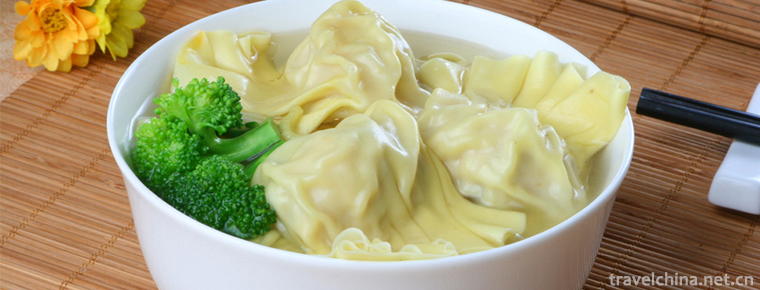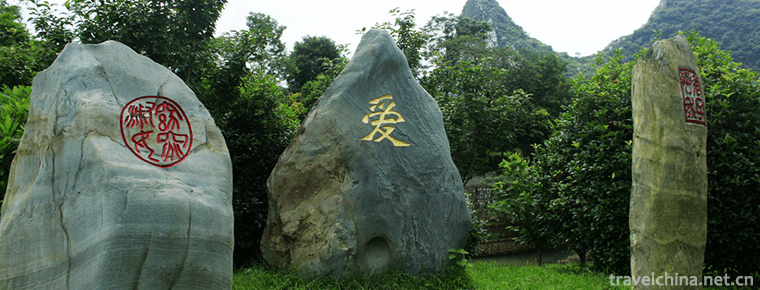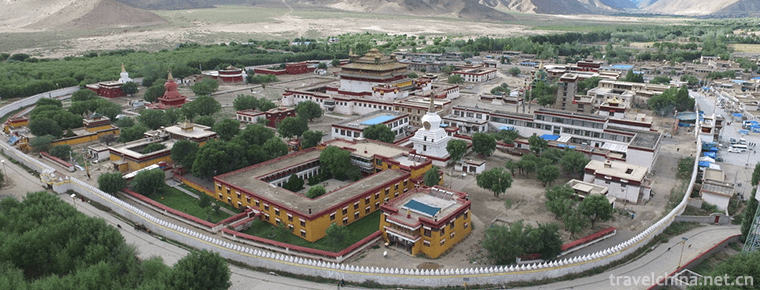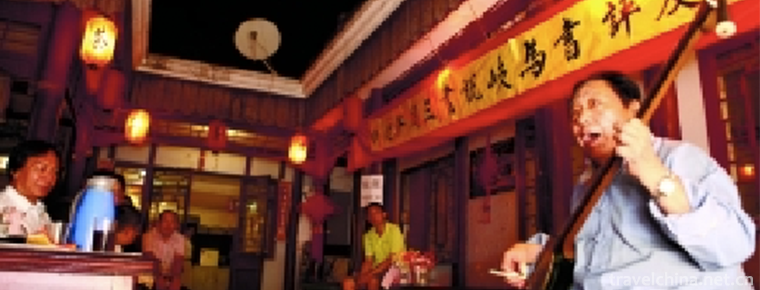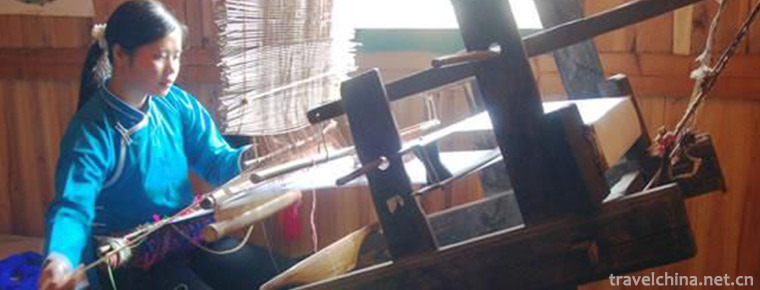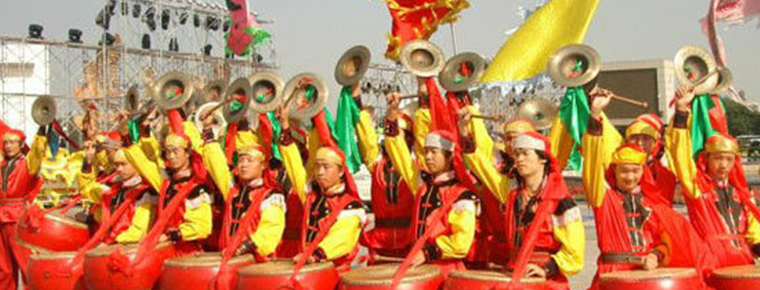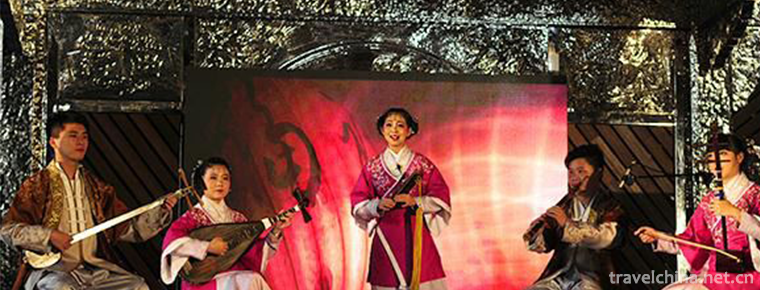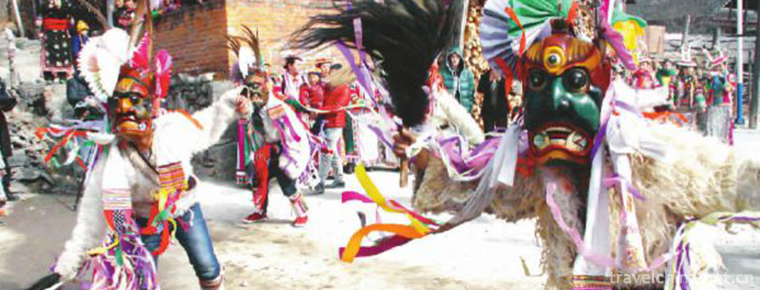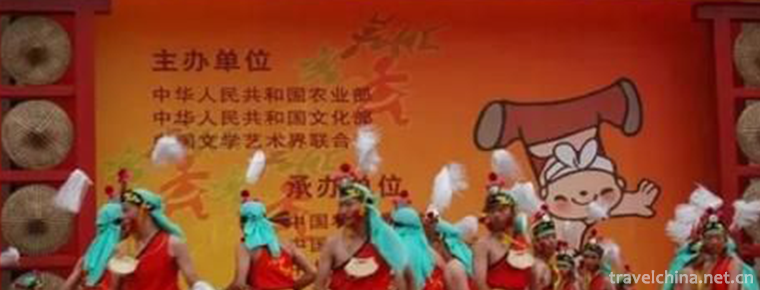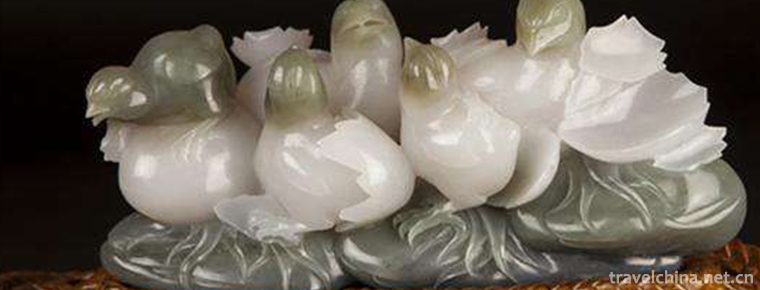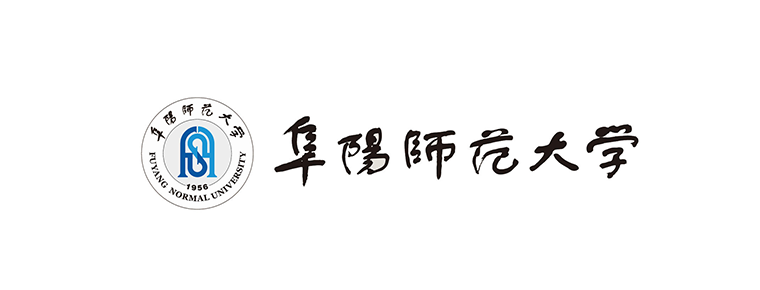Xihe Opera
Xihe Opera
Xihe Opera, also known as Xingzi Xihe Opera, is a traditional opera popular in Xingzi, De'an and Jiujiang counties and cities of Jiangxi Province. Its main vocal cavity is Pihuang, also known as "Tanqiang Opera", commonly known as "Star-son Opera", because of the flow of the West River through the Star-son, it was named "Xihe Opera" in 1982.
On May 23, 2011, the Xihe Opera declared by Xingzi County of Jiangxi Province was listed in the third batch of national intangible cultural heritage list with the approval of the State Council.
A Brief History of Drama
During the reign of Qianlong in the Qing Dynasty, Nanchang area in the lower reaches of Ganjiang River and Yongxiu, De'an, Jiujiang and Xingzi counties in the Xihe River Basin, the main tributary of Ganjiang River, were the areas where Yiyang Opera, Yihuang Opera, Qingyang Opera and Hubei Han Opera frequently took place. During the Jiaqing period of the Qing Dynasty, the various tunes merged, first of all, a random bullet class was formed in Nanchang, which had a wide influence. During the reign of Qing Daoguang, Tang Dale, a famous artist (born in 1801 in Gaotang, De'an County), sang in the Chaotian Tan troupe in Nanchang and the Han Opera troupe in Hankou, and then returned home with his brother Tang Darong, organized Tangjia Opera Troupe in Tangjiabang, where he rehearsed Huangpi Opera. Tang Dale and Xingzi have many Tong family members. From the end of Daoguang to the beginning of Tongzhi (1850-1862), Tang Yuguang came to Xingzi to teach operas and collect a wide range of artists. He established the first opera troupe in Xingzi County, with more than 30 performances. In 1874, Zhou Zixiu, a star artist, took the lead. The troupe was named "Princess Qingyang Xingyi Yihe Ban", or "Yihe Ban" for short. Zhou Zixiu, born in 1844 in Sujiashiren, Xingzi County, was "extremely intelligent since childhood, and later learned the career of actors. Therefore, for the history of the past and present, we do not know its general outline, the state of joy and sorrow, are all human" (from the epitaph of Zhou Zixiu). His son, Zhou Enrollment, is known as "good and good at acting" (from the epitaph of Zhou Enrollment). His grandson, Zhou Yangxin, Yang Yin and Yang Yin, "can continue their ancestor's career" (from Zhou Zixiu's epitaph), and later are all famous artists of Xihe Opera and backbone members of Yihe Band. There are also some famous artists such as Guo Deying, Liu Zhonghua and Huang Yizheng. At that time, Yihe Ban performed more than 50 major and 30 minor plays such as "Dalong Peng", "Qingguan Book", "Crossing Zhaoguan", "Sanguan Tuning General", "Baihuguan" and "Erjinggong". Singing is mainly Erhuang and Xipi. The performances follow the old habits of high-pitched tunes, such as "breaking stage", "releasing Wuchang", "newspaper stage" and "going to the second stage". The roles are divided into ten lines, that is, one last, two clean, three born, four old, six foreign, seven ugly, eight stick nine small and ten miscellaneous. In addition to performing locally in Xingzi, theatre troupes often travel to Yongxiu, De'an, Jiujiang, Duchang and other places (in the old days, most of them belonged to Nankang Prefecture and Fuzhi Xingzi County Town). Therefore, Xingzi Xihe Opera is abbreviated as Xihe Opera.
In 1888, Xingzi artist Liu Guoyuan (born in 1856) returned from "Ruizhu Band" to join Yihe Band and succeeded Zhou Zixiu as the leader. In 1889, Xingzi artist Tang Zaishu (born in 1864) came back from "Han Ban" in Hubei Province to join Yihe Ban. In 1919, Xingzi artist Wan Zhengbang (born in 1891) came back from Jingdezhen to join the class. Although these old people are "cold in years, drinking in the afternoon outside", they are "quick-witted, talented, able to perform ancient plays and rehearse plays" (from Tang Zaishu epitaph). They brought new repertoires from other places and reformed a number of old singing tunes, such as changing Xipi roof (Bantou first singing) to instrument board (that is, the third eye first singing), which greatly enriched the art of Xihe Opera. Xingzi's other professional artists have sprung up in great numbers, and Yihe class has expanded rapidly. In 1910, the Yihe Class was divided into two classes, North and South, to meet the needs of busy performances. The North class is headed by Tang Zaishu and the South class is headed by Zhou Zhaoxue. The bases are located in Hot Spring and Sujiabao respectively. The Yihe Class was divided into classes in 1910, and jointly in 1924 to the outbreak of the Anti-Japanese War in 1937. The period of 27 years is the heyday of Yihe Ban. There are many excellent artists in the class, 11 of them have been awarded 14 times. There are local legends and stories, known as Zhou Enrollment, Wanzhengbang, Tang Zaishu, Liu Dunhu and Mei Chuanxin as "the night emperor", "the night sand cap", "the night official", "the theatre cabinet" and "the half of the three half-darlings of the whole country". In addition to participating in various temple fairs, ancestral halls and stage performances in the county, Yihe Ban has been touring De'an, Yongxiu, Jiujiang and Duchang. For a long time, "South Expedition and North War", "East Benz and West Benz" and "Drink in the afternoon outside". Where the performance is performed, "everyone enjoys talking about it as soon as possible" (from the epitaphs of Tang Darong, Liu Dunhu and Zhou Zixiu, respectively).
When Yiheban developed, folk amateur performances were also in the ascendant. In addition to a large number of additional theatres, villages and villages worship Bodhisattvas king of music. Every year, on August 28, they hold a music festival to worship opera gods. Every New Year's Day, the village hires theatre teachers to teach rehearsals. It's time to start firing guns, gongs and drums, and staying up all night for days. Most of these "apprenticeship plays" also follow the rules of righteousness and class practice, such as the Lile throne, the opening of the clown, the breakdown of the stage by artists, the first stage, the second stage, and the last night's performance of the "Fu Opera" round table and so on.
Xingzi Xihe Opera was restricted in the 1960s and 1970s, and has been restored and developed since the reform and opening up. The script is basically adapted from other traditional Chinese plays. The performers and bands are young and middle-aged farmers. In 2010, Xihe Opera was selected as the third batch of national intangible cultural heritage, traditional drama project category, serial number 7.
In 1945, after the victory of the Anti-Japanese War, the county government moved back to Xingzi from Duchang. In August, Yiheban staged Xihe Opera for three days in front of the old mansion hall in the county town to celebrate. The performances include "The Great Judgment of Yutang Spring" and other plays. Later, Xihe opera activities were gradually restored. But the old government was busy with conscription, reconnaissance, election campaign and even banning theatre instead of seeking rule. The reason is that "in recent years, the idlers in the countryside, Hengduo play and gamble, small family ruins, big bandits, influence the society, is not shallow. "The fire at the gate of the city damaged the fish in the pond. When there was a gambling situation, the stage was demolished and the theatre performers were suppressed. "If there are private shelters, dismissal and investigation." "If there is resistance to all kinds of situations," immediately suppress (from the old government notice). In 1949, the PLA entered the country and the old government fled. In 1950, Yiheban was dissolved.
Since the Anti-Japanese War of 1937, the Poyang Lake area was in a state of war, endangering the towns along the lake. Xihe Opera also shifted from coastal areas to inland areas. Xingzi's amateur performances are still flourishing in the countryside south of Lushan Mountain with Hualin as the center. Yihe Band also takes part in many activities in this area. Hualin has more than 20 famous artists, accounting for two-fifths of all artists at that time. In 1938, when the Japanese army entered the country, the government of Xingzi County moved to Duchang. The lake was blocked. Many Japanese forts were built along the lake by Xingzi. The Xihe Opera activities quickly failed and Yiheban entered a difficult period. Although there are occasional performances, they can't make ends meet. Many artists turn to shadow play to make a living. In 1942, Ling Yihe Ban, the prefect of Japanese puppet counties, performed the Dragon Boat Festival in Hanling, Polygonum, and many artists could not escape. The rest of the artists wandered around and were on the verge of losing their lives. Some of them turned to shadow play because they were sick and died in other places.
After the founding of the People's Republic of China, Yiheban was difficult to recover, but amateur performances in rural areas flourished, and most of the artists took teaching operas as their profession. County cultural departments attach great importance to the role of Xihe Opera in activating rural amateur cultural life. They hold various kinds of Xihe Opera performances, performances and learning classes, and Xihe Opera recovers and develops rapidly. On New Year's Day, it has become a local custom for villages and villages to sing Xihe Opera and entertain themselves. Nowadays, all kinds of happy events in the countryside, together with universities, joining the army, relocating new houses, wedding days, even agricultural contracting, and opening of enterprises, all people are willing to spend little money and invite an amateur theatre troupe to sing Xihe Opera to entertain guests in celebration.
Famous actors
In recent decades, the most influential old artist in Xingzi Xihe Opera was pushing the Yellow Age forward. Huang Jinzi Xinmin, born in 1897, died in 1990 in Huangcun, east of Hengtang Township, Xingzi County. When I was young, I studied in private school for eight years. I was fond of poetry and prose. My family was very rich. My father was a businessman. I opened a small shop in my hometown. After that, I took acting and teaching operas as my career. Huang Zhaosheng, a 24-year-old Baixihe opera artist, studied Xihe opera as a teacher, while Fameng opera was called "Crossing Zhaoguan Pass". After three years of hard study and mastery of skills, he formally joined Yihe class. The main actors are Wen Zhengsheng, Wen Jing, the clown, and sometimes the flute. Being tall, broad-faced and loud-mouthed, he soon became the main student in the class and could be called a pillar. He traveled with the opera to various places. In 1930, Huang was promoted to be a class leader, and his skills became more and more proficient. On the eve of the Anti-Japanese War in 1935, the theatre troupe performed Meilong Town in the county town, while Huang played Zhengsheng, Emperor Zhengde. The old government awarded a silver medal with the four characters of "good voice and good color". Since the beginning of the Anti-Japanese War, the theatre was disbanded and Huang continued to do business. A year later, Xingzi County was occupied by the Japanese, and the county government retreated to Duchang County opposite Poyang Lake. Duchangwen Ci Band and some performers of Xingzi Xihe Opera performed at Yanwangmiao stage at the same time. They performed in turn every day. At that time, the literary CI troupe had a great reputation in Duchang and had a large audience, while the Xihe troupe had a large number of performances. Zhang, the head of Xingzi County, invited Huang to go to Duchang. Huang Jianzi's plays are all martial arts performances starring Song Dehong artists. He immediately changed to literary drama. On that day, Jixin was performed in the daytime. Yang Tingzhao and Jixin, the protagonists of Huang, were applauded by the audience. In the evening, Silang Tour Mother was staged, and tickets were snapped up. Then, the next night, the performance of "Tianshuiguan" yellow as Kong Ming, and the third night, the performance of "Songjiang Kill Cherish" yellow as Songjiang, the audience was full, the Ci Class was forced to stop playing. Zhangxian Changxi presented Huang Jingdezhen a set of porcelain.
artistic characteristics
Xihe Opera, rooted in village and country slang, absorbs the nutrients of local folk art. It is simple, concise, vivid, primitive and vulgar. Its melody is exuberant and bold, simple and simple, and its singing style is slab style. It takes Xipi and Erhuang as its basic tone, and has Qingyang Gaoqiang, fishing songs and folk minor tunes. Its singing tone is short, with lining words in the middle, and its lyrics are mostly seven-character sentences and crosses. Duan, with the voice as "Sheng, Dan, Jing" three. The lines are pronounced in Baiduo and local slang. The costumes are antique and the performances are simple and exaggerated. The "fighting hand" in martial arts is vigorous and graceful, mostly derived from folk boxing. Music has Beijing Hu (commonly known as "cymbal"), Erhu (commonly known as "cymbal"), the Republic of China began to use the yueqin. Xihe Opera is mostly historical robes with operas, mostly based on historical stories, focusing on the Three Kingdoms, Sui, Tang and Song dynasties. Its content advocates loyalty, righteousness, honesty and filial piety. Its performance form is relatively fixed, and its living style is more artistic than its artistic style.
Survival status quo
In recent years, with the changing social environment, the popularity of new cultural forms such as movies, television, the Internet and the infiltration of foreign culture, Xihe Opera has shown a downward trend, the market has shrunk, audiences have lost, and the grand occasion is no longer. Up to now, although Xingzi County has no special research institute and professional Xihe Drama Troupe, there are more than 100 amateur folk troupes, which perform more than 200 performances in the year. People are more concerned with singing grand operas as a way of life for self-entertainment and self-entertainment. Every natural village in Xingzi County has the ability to sing Xihe Opera independently. Singing Xihe Opera has become the main form of celebration for the masses in festivals and festivals. In recent years, many efforts have been made in Xingzi County to rescue Xihe Drama in time, and 54 complete scripts have been collected and sorted out. Now Xingzi County has successfully declared the national intangible cultural heritage and stepped out of a powerful step in the protection of Xihe Drama.
Inheritance Significance
Xihe Opera itself is a kind of culture, an art form. Based on historical stories, she advocates loyalty, filial piety, festivity and justice, and promotes and activates rural culture from one side.
To put it further, people in the 1950s and 1960s seldom received systematic historical education, but most theatre fans knew the allusions of the past dynasties like the palm of their hands; "All good and filial piety are the first, loyalty and filial piety are the first..." These good codes of conduct have more or less influence on one's own self-cultivation, just like Chen Shouting in Da Dye Fang, who says that illiterate people do not understand history, there is no self-cultivation! As our generation, we have good learning conditions, most of which are utilitarian and practical. Compared with our predecessors, we are sweating.
Many operas are gradually shrinking under the impact of the modern economic wave, Xihe Opera is no exception. Most young people are working outside, and even when they come home for the New Year, few people are interested in it.
It is not possible for most people to participate in the performance, but the protection can be achieved through some professional arrangement. Generally speaking, we can start from the following aspects: first, we collect the whole layout of the previous scripts and publish them. Secondly, some classical plays are recorded and archived. Conditions and conditions can be achieved through the formation of an amateur theatre troupe, such as individual units need to be able to perform through commercial sponsorship; if it can be fully commercialized, it can also be promoted by borrowing the signature of Shaoxing's social theatre. Thirdly, some young people who are interested in Xihe Opera should be trained.
I am very gratified to hear that Jiujiang is carrying out rescue protection for Xihe Opera. I would rather believe that Xihe Opera will last forever. Even if one day in the future, Xihe Opera will be submerged in the torrent of history, the joy and enlightenment that she once brought to us will be passed on forever with history.
Inheritance and Protection
After the founding of the People's Republic of China, Huang has participated in many county and district-level performances. In October 1980, he was awarded by Jiangxi Provincial Bureau of Culture. The certificate said that Comrade Huang Jijin had made great contributions to the rescue, inheritance and innovation of Xihe Opera. This award is hereby issued to encourage him. In his life performance, Huang paid great attention to the merits and demerits of the lines in the play. When there were some mistakes, he seriously revised them. He also reorganized and adapted the traditional plays Xu Zeruicheng, Ertang She Zi, Mantang Fu and so on. Huang taught five apprentices in his life, and they all became excellent artists. The artists handed down by the five were less than 70, and Huang Jijin was regarded as a highly respected artist of Xihe Xide.
Xihe Opera is one of the most fruitful ancient operas in Jiangxi Province. It was selected as the provincial intangible cultural heritage protection list in June 2008 and listed as the third national intangible cultural heritage list recommendation project list in May 2010.
In November 2010, in order to protect and excavate local excellent traditional cultural heritage, Xihe Opera, a non-material cultural heritage project book compiled and sorted out by Xingzi County, was officially published and published. This is the first book specializing in non-material cultural heritage project published by the county. Published by the Chinese Poetry and Ci Publishing House and financed by the Xihe Opera enthusiast Zhu Guitao of Xingzi County, the book took two years to compile and organize. According to the historical evolution, repertoire, musical aria, performing arts, figures, miscellaneous records and other chapters, it compiles 204 repertoires with a total of 500,000 words in a single fold. Promoting Xihe Opera, an excellent traditional cultural heritage, will play a positive role in promoting it.

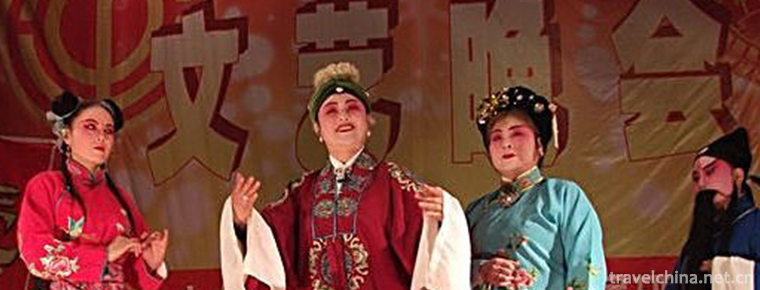
-
Wonton Noodle
The wonton noodle is also called the bamboo rising face. It is a characteristic snack in Guangzhou. It originated in Guangzhou and Guangdong cuisine.
Views: 196 Time 2018-11-14 -
Nanxi Mountain Scenic Area Guilin
Guilin Nanxi Mountain Scenic Area (that is, Guilin Nanxi Mountain Park) is located in the south of Guilin City, about 1 kilometer north of the railway station. The two peaks of Nanxi Mountain confront.
Views: 70 Time 2019-01-13 -
angye Temple
Sangye Temple, also known as Cunxiang Temple and Wubian Temple, is located in Sangye Town, Zaburg County, Shannan District, Tibet Autonomous Region, under the Habu Mountains on the North Bank of the Y.
Views: 173 Time 2019-02-07 -
Beijing storytelling
Beijing Book Review is a traditional art of rap and singing. Legend has it that Liu Jingting (1587-1668), a Southern Jiangnan storyteller, came to Beijing in the late Ming and early Qing Dynasties.
Views: 451 Time 2019-04-04 -
Dong Brocade Weaving Techniques
Dong brocade weaving technology, the traditional handicraft of Tongtong Dong Autonomous County in Hunan Province, is one of the national intangible cultural heritage..
Views: 151 Time 2019-04-27 -
Gong and Drum Art
Gong and drum art can be roughly divided into Yunsheng Gong and drum, Zhongzhou big drum, Ezhou brand gong, Xiaohe Gong and drum, Hanggu flying gong, Changshan battle drum, Taiyuan Gong and drum, Liji.
Views: 368 Time 2019-05-15 -
southern accent
Nanyin, also known as "string" and "Quanzhou Nanyin", is the oldest ancient music in China. During the Han, Jin, Tang and Song dynasties, the immigrants from the Central Plains bro.
Views: 193 Time 2019-06-07 -
Jumping Cao Gai
Caogai jumping is prevalent in Baima Tibetan area of Pingwu and Nanping counties. It is held on the sixth day of the first month of the lunar calendar every year. Cao Gai is a Baima Tibetan phonetic t.
Views: 100 Time 2019-06-21 -
Horse vaulting
Horse vaulting, a traditional sacrificial dance, is popular in Rudong, Jiangsu Province. It is a dance performed in sacrificing the "Dutian King" they believe in. Participants held "hor.
Views: 103 Time 2019-06-21 -
Jade Carving in Yangzhou
Yangzhou has a long history of jade carving. Jade carving in Yangzhou reached a new peak in the Tang Dynasty, and carving and striping appeared in the Song Dynasty. During the Qianlong reign of the Qi.
Views: 95 Time 2019-07-10 -
Fuyang Normal University
Fuyang Normal University is a regular college in Anhui province. Excellent agricultural and forestry talents education and training plan Reform pilot projects, the first batch of pilot units for compr.
Views: 167 Time 2019-11-09 -
Neijiang secondary industry
By the end of 2019, there were 329 Industrial Enterprises above Designated Size in Neijiang City, and the added value of industries above designated size increased by 9.5%. The added value of the five traditional pillar industries increased by 9.8%, including.
Views: 332 Time 2020-12-16
